Let me introduce to three brothers, who I am fairly certain you will never have come across before and neither had I until by chance I came across Joseph Longchamp and of course, I was curious to know more about him. The only reference I had about him was in connection with Sir John Lindsay when Joseph was briefly his valet accompanying him in 1769 to Bombay. The author of the book simply described this valet as ‘Longchamp, a German, who was to become a great man in Newmarket’.
Armed only with a possible name and Newmarket to go on, even then, I was unsure as to whether Longchamp was really his name or whether it was just a nickname given the horse racing connection in Newmarket.
Anyway, with a little digging, I came across his will and sure enough, Longchamp wasn’t a nickname, it was the surname of a Joseph Longchamp of Newmarket, who wrote his will in 1807, leaving everything to his wife, Anne nee Milton of nearby Bottisham, Cambridgeshire and a few other beneficiaries including his nieces and nephews.
Despite the reference to Longchamp saying that he was German with such a surname, I suspect perhaps he was actually of French descent, but I still have no proof either way.
The three brothers were Joseph, Xavery (which appears in a whole variety of different ways), and Ferdinand. They were born around the 1730-40s and lived in London. There are no clues as to whether they were born there or emigrated from France or Germany. They were from a working-class, labouring background, this fact being confirmed in a document pertaining to Axavery’s first wife, Jane, in which his occupation was given.
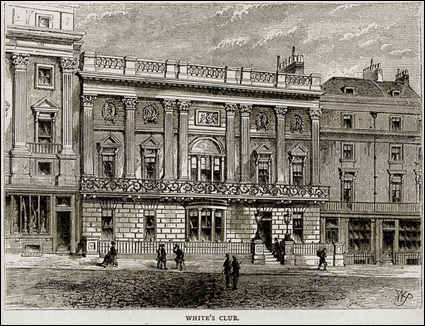
Joseph, who may well have been the eldest, learnt his trade as a cook working for the prestigious gentleman’s club, Whites, where he worked until 1765.
White’s was renowned for only employing the best cooks; therefore he would have been given a good grounding in his craft. Members paid a premium to ensure that this remained the case, this was set in their rules
That no-one be admitted but by ballot
That nobody be proposed but when twelve members are present
That there be twelve members present when the person is balloted for, which is to be the day seven nights after he is proposed, and one black ball is an exclusion for that time.
That any person that is balloted for before nine o’clock is not duly elected
That every member is to pay a guinea a year towards having a good cook
That no person be admitted to dinner or supper but what are members of the Club.
That every member that is in the room after ten o’clock is to pay his reckoning at supper
Joseph finally decided that it was a good idea to branch out on his own, and with that, he applied to the Westminster Sessions of the Peace for a victualler’s licence and set up his dining establishment, ‘The Pineapple’, at New Spring Gardens, near Five Fields, Ranelagh Gardens.
He placed adverts in the newspapers to attract clientele:
NEW SPRING GARDENS, situated between the Ranelagh Road and Chelsea Five fields, are decorated in an entire new taste, and will be opened on the 1st of May, for the reception of gentlemen and ladies, who may depend on finding the following articles in the greatest perfection, viz tea, coffee, wine of every sort, punch and spiritous liquors etc. It is hoped servants in livery, women in red cloaks and coloured aprons, will not be offended if refused admittance. All possible care will be taken, and the best attendance procured to accommodate, in the genteel manner, those ladies and gentlemen who confer the honour of their company on the public’s most humble servant, Joseph Longchamp, late cook at White’s.
N.B Any ladies and gentlemen who choose to have dinners provided, or suppers, coming from Ranelagh on sending in the morning, may depend on having their commands punctually and elegantly executed. There is a coach way from the Ranelagh Road.
Joseph obviously had a certain type of clientele in mind and ladies inappropriately dressed and servants in livery were not acceptable. I have tried to find out the significance of the dress code for ladies, but without any luck, but he was, politely, if firmly, clarifying what was not an acceptable dress code.
In further adverts in 1768, Joseph informed potential clients that he had added many more features to his premises –
lights to show off the waterworks, grotto work and painting more conspicuous’. He intended to ‘open them every evening between eight and nine o’clock, weather permitting and by the signal of a rocket, plus other improvements in the gardens. Tickets of admission 1 shilling each. A coach way from the Ranelagh turning up by the first houses from the fire engines’.
He was investing a great deal of money in establishing his premises as the ‘go-to’ venue for people who had visited Ranelagh.
Joseph continued to run the business for the next few years, but it was evidently not proving to be profitable as he would have hoped, as late 1768, he was declared bankrupt.
Presumably now virtually penniless and still a single man in his thirties, he took the post of valet to Sir John Lindsay and went off to Bombay with him. Quite how to two met remains unknown, perhaps their paths had crossed at Whites, but without access to White’s archives at present, it is impossible to verify whether Sir John was a member.

The trip with Sir John seems to have been quite a brief one for Joseph, in part as he will ill whilst in Bombay, so it seems quite likely that he returned to England and either bought or rented a property on Queen’s Row, London. There are no clues as to where he found the money for this property, having been declared bankrupt before going on his travels, therefore, must have either made his money whilst travelling or that he simply rented the property.
So, back in England, what was he going to do now? Well, his brother, Xavery was by this time married and working as a principal waiter at Brooks’s, another gentleman’s club. From 1783, Whites was the unofficial headquarters of the Tory party, whilst Brooks’s, just along the road was home to members of the Whig party. Perhaps Axavery could find a job for his brother?
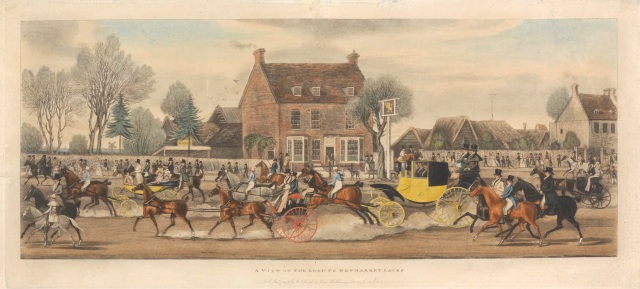
This was not to be the case, as Joseph packed his bags and travelled to Newmarket where he took up a job which he would retain for the remainder of his life – ‘Keeper of the New Room’, at the Jockey Club, Newmarket, working there with the likes of James Weatherby, who was Keeper of the MatchBook.
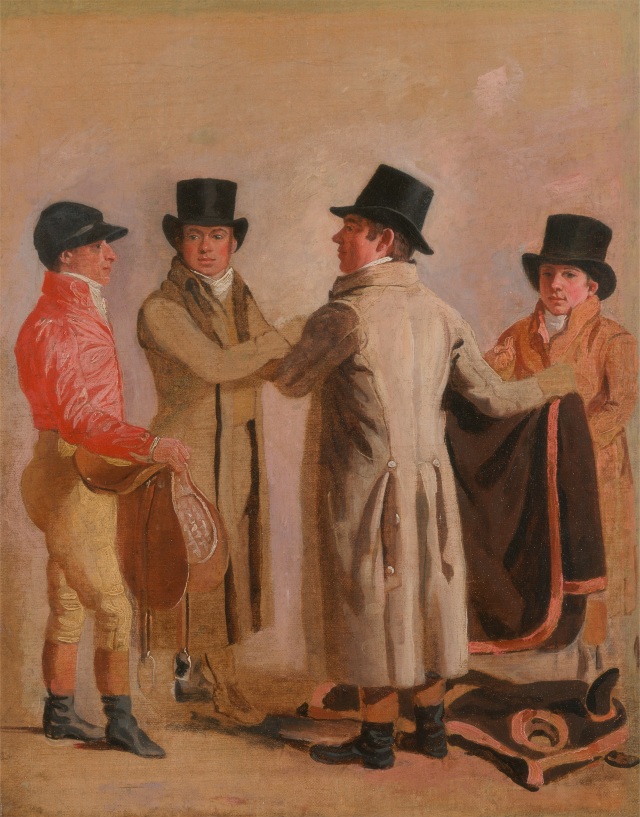
In 1778 he finally found himself a bride, Anne Milton and the couple were married at St Mary’s Church, Newmarket. Joseph remained at Newmarket for the rest of his days, which according to the Bury and Norwich Post was ‘upwards of forty years’.
 The Jockey Club wasted no time in appointing the next Keeper of The New Rooms – Mr William Parrs to take Josephs’ place.
The Jockey Club wasted no time in appointing the next Keeper of The New Rooms – Mr William Parrs to take Josephs’ place.
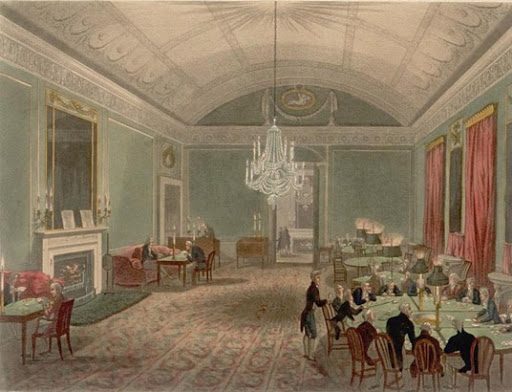
Axavery appears to have been fond of horse racing and even owned his own racehorses and, like his brother, was well known to the nobility and gentry. Quite what his position became at Brooks’s is still unclear, but it was he who took out the insurance for the club in 1785, described by this time as a gentleman, so like his brother, life had improved significantly from humble origins.
He owned at least two properties when he died in 1788, leaving his young second wife with eight children to support, the youngest being only 5 months old when he died. Axavery left his family well provided for with at least two houses, one on Great Carrington Street, London, the other on Old Bond Street, which he leased out, fully furnished to the Duke of St Albans.
In Axavery’s obituary notice there was one curious comment
About ten years ago he was put into Standon Hall, the property of Mr Plummer, to keep it as a hunting inn, but that plan was soon relinquished.
It would appear that the property was near Ware, Hertfordshire and owned by Thomas Plummer Esq and leased in 1766 to Axavery, but for some unknown reason, nothing became of this arrangement and as such the building was closed up and left unoccupied.
As for the third of the brothers, Ferdinand, apart from his marriage, death, and evidence that he was a gentleman who owned property on Princes Street, Cavendish Square, London, Ferdinand seems to have remained completely under the social radar until his death in 1804. He left no will, so right now clues as to his life will have to remain a mystery.
Sources
Travels, in various parts of Europe, Asia, and Africa, during a series of thirty years and upwards. By John MacDonald, by MacDonald, John
The History of White’s. Published by the Honourable Algernon Bourke
Prerogative Court of Canterbury and Related Probate Jurisdictions: Will Registers; Class: PROB 11; Piece: 1467
LMA. Westminster Sessions of the Peace: Enrolment, Registration and Deposit including licensed victuallers. WR/LV/81/286.
LMA. Middlesex Session of the peace: Court in Session. MJ/SP/1769/04/28 Jane Longchamp, wife of Longchamp, a labourer of St George, Hanover Square. 19 April 1769
The Sportsman and breeder’s vade-mecum or, An historical account of all the races in Great Britain, 1793
Sporting magazine. v.30 1807
The progesses and public processions of Queen Elizabeth. Volume 2
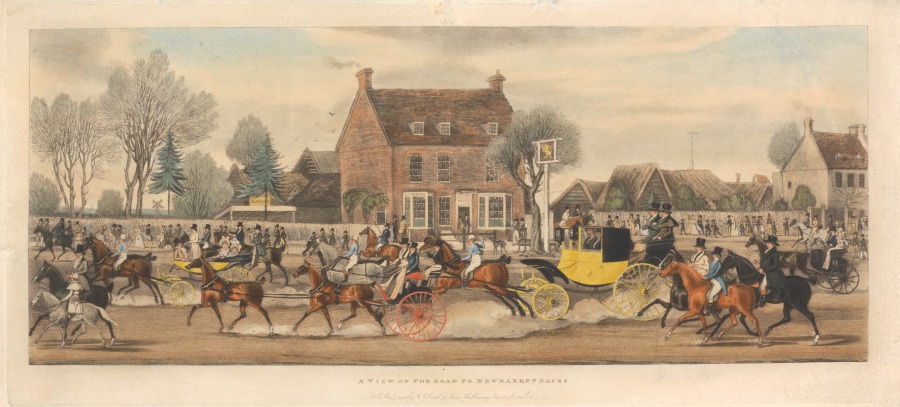

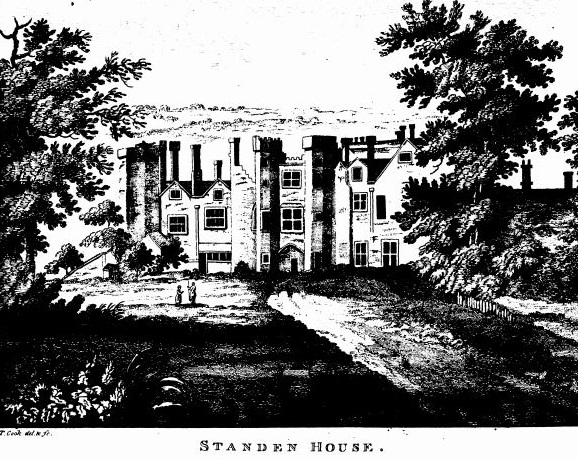
As always, a fascinating read!!
LikeLike
Aww, thank you so much, it’s really appreciated 🙂
LikeLiked by 1 person
You are very welcome! You write as well as you research and both are most enjoyable!
LikeLiked by 1 person
Longchamp is obviously French cf. Longchamp racecourse in Paris where my great great uncle rode in the late 19th century.
LikeLike
My inclination too, is to think the brothers were French, despite the reference to Joseph being from Germany when he worked for Sir John Lindsay 🙂
LikeLike
The border between France and Germany around Alsace, which today is in France, has been disputed for centuries and held periodically by both countries, so holding a ‘french’ name and being described as German would not be surprising.
LikeLiked by 1 person
So excited to find this via google. Xavery Longchamp was my 5x Great Grandfather.
I have been searching for years to try to find where the brothers were born. The idea that it could have been around the Alsace region sounds very promising.
Thank you for filling in some gaps for me regarding the lives of the brothers.
LikeLike
Oh excellent, that sounds really exciting. Do let me know if you make any progress with your research 🙂
LikeLiked by 1 person
Will do!
LikeLiked by 1 person